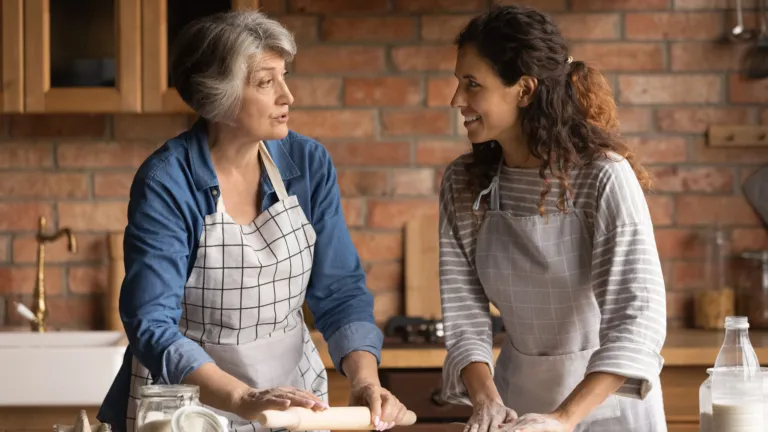Cathy Franz, LSW, is a Care Consultant for We Care…Because You Do at Benjamin Rose Institute on Aging
Your loved one’s dementia diagnosis may not take you by surprise. After all, it’s likely you’ve noticed the signs and symptoms for a while. Yet here you are together in the doctor’s office. The testing and assessments have confirmed your serious concerns. Your immediate reaction may be shock and fear. From there, your thoughts and feelings may run the gamut. Part of you may be somewhat relieved that you’ve found answers, yet you feel overwhelmed and unprepared. What’s the next step?
Knowledge is power. A good start is to find out as much as you can about dementia. First questions for the doctor may include:
- What type of dementia has my loved one been diagnosed with?
- Can you give me information to help me learn about the disease?
- In what stage of dementia is my loved one? Remember that everybody is different, and individuals are diagnosed at various stages. Early-stage and recently diagnosed are not synonymous.
After discussing these things with your doctor and going over whatever information you’re given, reflect on what convinced you to seek out the diagnosis for your loved one. It may have been overall concern with symptoms you’d noticed or it may have been more specific. Maybe you’d grown worried about your loved one’s driving abilities. Maybe there was a prescription drug error. You may have seen personality shifts or your loved one may have gotten lost. This central issue can be a good jumping-off place. For example, if your loved one has expressed concerns about his or her memory and wants to know more about what’s going on, you may consider exploring support groups. Instead, if the overriding issue was wandering or a driving incident, then you may need to take more immediate steps to keep your loved one safe.
Even though receiving this diagnosis can be shocking, difficult to believe or even leave you questioning its validity, the time to plan is NOW:
- Give thought to your loved one’s preferences for care
- Look into community-based organizations that can enable your loved one to live safely at home.
- Find out about senior services offered in your area, like transportation and meal delivery. It can also be very helpful to check out organizations geared to the concerns of people who have the specific type of dementia your loved one has been diagnosed with. These organizations can be excellent resources for information, behavior strategies and support.
- Open yourself to the idea of enlisting professional assistance. Care Coordinators, social workers and case managers work with families to address their specific needs and guide them through an array of service offerings.
Naturally, your focus is on your loved one at this time. But don’t neglect yourself. Remember to think about YOUR emotions. Allow yourself the time and space to sit with and recognize your feelings, whether they’re sadness, anxiety, anger or even relief. Understand that you do not have to take this journey by yourself. You can connect with others through caregiver support groups, online forums, message boards, and social media platforms (such as Facebook).
A loved one’s diagnosis of dementia can lead to many emotions. It’s crucial to process these emotions and to get support. WeCare…Because You Do, an email and phone-based program of care coordination and coaching, can provide you with the tools and supports to educate yourself about the disease and services available can help clarify next steps and make each day feel doable.





